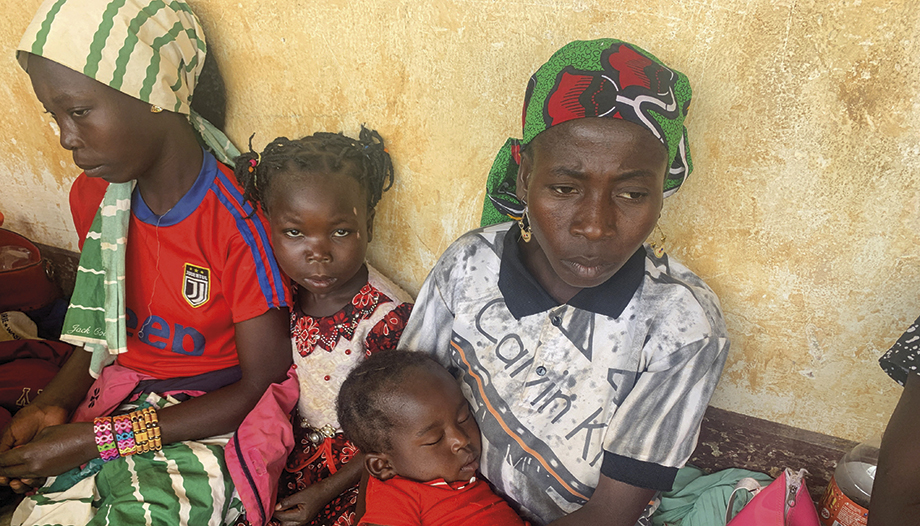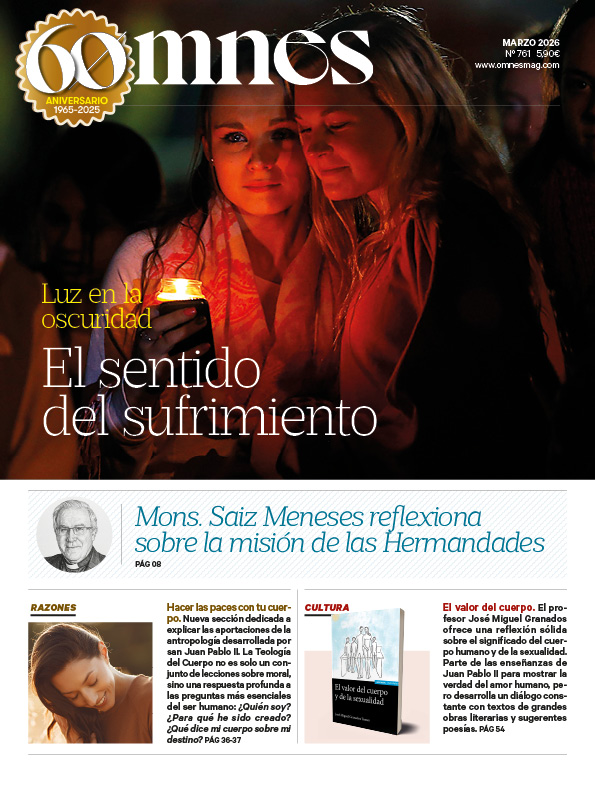As a physician, I have been treating African women in my practice for many years. On a daily basis, I am witness to a type of pain that is very characteristic in Africa and that we have to deal with on a daily basis. It is linked to the female condition. I call it the feminization of pain and has very peculiar characteristics. I will refer to it with some concrete examples:
Sterility
Infertility, whether male or female, is seen socially as a woman's fault. A woman who cannot have children is a woman who is insulted, mistreated, shamed in public by the in-laws or even by her own family. It is a reason for repudiation and abandonment by the husband, or worse, sometimes the husband brings home a second wife, without warning her. She must endure an unwanted polygamy with which the husband seeks to have offspring. All this without any dialogue or decision-making capacity.
The pain of widows
The economic and social exclusion of widows is a complex and unequal problem that manifests itself in different regions of the African continent. The situation of widows in Africa is often marked by a series of prejudices deeply rooted in traditions, social norms and legal systems. These women, faced with the loss of their spouse, are often deprived of rights, access to resources and opportunities, which exposes them to increased vulnerability and considerable difficulties in meeting their needs and those of their families. Some are relatively young, which can condemn them to many years of widowhood.
After the death of her spouse, a woman is likely to experience degrading practices, whether psychological or physical. She may be forced to have sex with other family members, suffer physical violence and public whippings. Other customs include making them drink water from the body where the husband has been washed or shaving their heads.
In certain regions, for example, in certain tribes in Kenya, the ancient practice of levirate marriage obliges widows to marry one of their deceased husband's brothers in order to continue farming the land. She can appropriate his inheritance and come and live with her: thus, one out of every two African widows remarries a relative of her deceased husband.
Some widows face an even more difficult fate, especially if they oppose it. They are then marginalized, threatened with forced sex, deprived of all inheritance, sometimes even expelled from the village. If this occurs in a context of conflict, the women must then support their families alone, sometimes in a refugee camp.
In the Democratic Republic of Congo, 50 % of women are widows. Some are also victims of rape and susceptible to Human Immunodeficiency Virus (HIV). All these factors contribute to the feminization of poverty.
We can imagine how much pain there is behind these situations: physical, psychological, social pain, the pain of violated human rights, the pain of inequality, the pain of seeing your own property taken away from you.
These women we see in the office tell us about all this pain and we must take it into account because, many times, the diseases they present to us are somatization of so much pain, which manifests itself in back pain, gastritis, arthritis, headaches, hypertension, etc.
Perinatal bereavement
One pain that we don't pay any attention to in Africa, and which often makes me very uncomfortable, is the pain of the pregnant woman who gives birth to a stillborn child, or a woman who is diagnosed with an intrauterine death.
In the hospital where I currently work, the medical director does not allow us to inform the woman that the fetus is dead before expulsion because, according to him, the woman begins to grieve and does not push or collaborate in the contractions to expel the fetus. I, who do the ultrasounds, often tell the woman that the child is suffering, that the situation is not good, in order to prepare her in some way.
Subsequently, the woman faces the mourning alone, with no one to deal with her feelings about the loss of her child, whether it was stillborn or died after birth. These are situations where there is a lot of silence and the woman has to manage her feelings alone, or worse, sometimes she is accused of witchcraft and of having evil spirits that have caused the death of the baby. There is a lot of silenced pain in these situations.
Sexual violence
Sadly, I see many cases of sexual violence in girls in my practice. This violence usually occurs in the family environment and is often silenced, so that, in addition to the pain of the rape, there is also the pain of feeling that the parents have not defended her, or that the adults knew about it, but have kept quiet and have done nothing.
Rape is also frequent, either through nighttime home robberies or public cab robberies, culminating in the rape of the victims in an open field, sometimes by several assailants.
Violence reflects the fragility of the social fabric and the sense of belonging to a community or tribe, as a girl who has been a victim of rape is often subsequently rejected by her own close environment.
Watching a child die for lack of means
Another pain I deal with on a daily basis is that of seeing a child die due to lack of financial means. How many deaths we see that are avoidable!
Children who die from anemia, malaria, respiratory or intestinal infections, simply because they did not go to the doctor earlier.
The pain on the faces of mothers when they see their children die is indescribable. It is a pain that remains engraved on the faces of health workers in low-income countries and that also causes us a lot of pain ourselves, because we feel such helplessness. It is a pain that affects, above all, women, since in most cases they are economically dependent on their husbands. This may be because they have no income of their own or, what is even more serious, because their husband does not provide them with the necessary money to take their children to the doctor, often arriving too late. Cases of malnutrition are also observed, due to the lack of sufficient food for their children.
Failure to recognize the dignity of women
Sometimes the woman is seen as an object. She has to be, in most cases, available to her husband for whatever he wants, wherever and however he wants.
Women have no say in the family. It is men who decide in most cases, although it is true that there are always exceptions.
Types of suffering
The sufferings of African women can be of various kinds. The first pain that physicians must accompany is physical, but it is not the most important. In Africa, especially in chronic disease, there is a lot of pain: highly advanced AIDS, sickle cell disease, tuberculosis, poorly controlled diabetes, cancer, natural disasters and conflicts. This pain can be physical, but above all there is a global suffering of diverse origin.
-Physical pain. Many times, due to lack of means or erroneous beliefs, a lot of pain is endured. In my clinical practice I always say that "pain is not endured, it is fought"..
-Refractory symptoms. In chronic diseases or palliative care there are symptoms that are very difficult to control: nausea, vomiting, anorexia, asthenia, neuropathic pain. Since they cannot be eliminated, they generate suffering.
-Economic suffering. The sick person does not produce and is a burden on the family. Often there is no money to pay for lifelong treatment (diabetes, hypertension), leading to serious decompensations such as diabetic coma or stroke.
-Psychological suffering. At the end of life, the person feels his death close, expressing it with rejection, anger, depression, sadness or aggressiveness. This is compounded by the fear of witchcraft and accusations that many sick people suffer, which plunges them into greater pain.
-Spiritual suffering. In the face of gravity, vital questioning arises: "what have I done with my life?". The image of God, the fear of judgment and the desire for sacraments weigh on believers. Also the pain for lack of reconciliation with close relatives, which sometimes the disease allows to restore.
-Social isolation. People with chronic diseases with sequelae live in isolation and suffer a "social death". Some patients with festering pathologies are isolated even in their own homes.
Slave of the Sacred Heart of Jesus. Physician and Theologian








